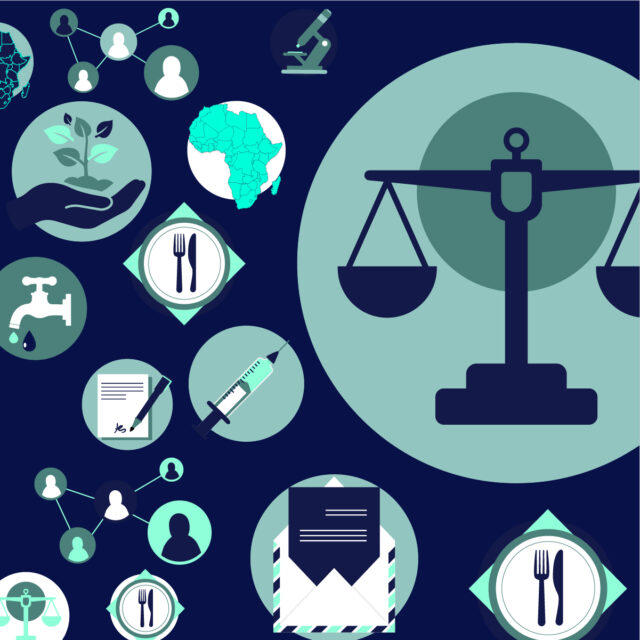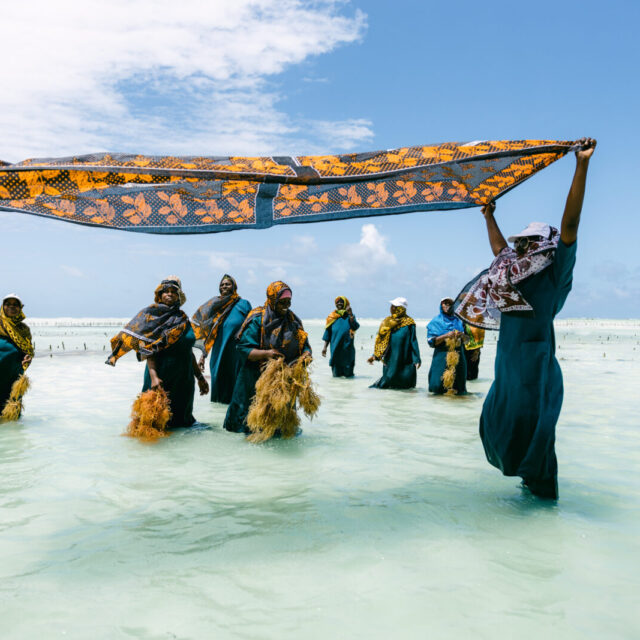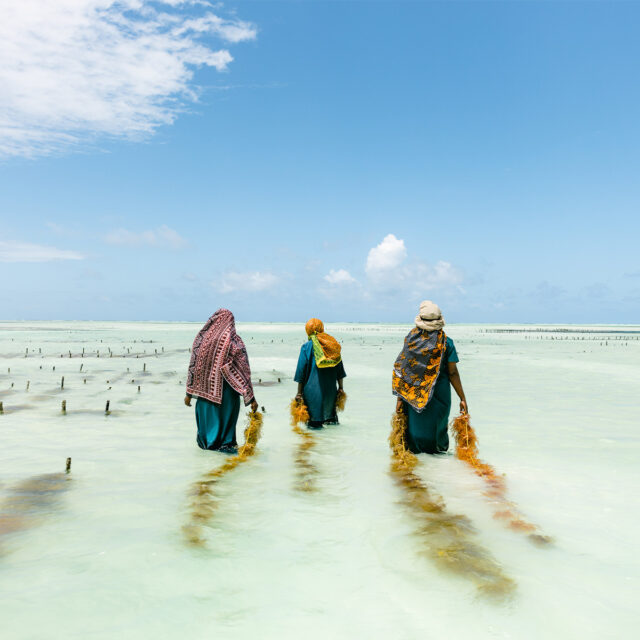Top news
Two viruses collide: Scientists are increasingly concerned about a possible link between HIV/AIDS and new COVID-19 variants. A team of experts at the Network for Genomic Surveillance in South Africa recently documented the case of an HIV-positive woman whose COVID-19 infection lasted nine months and resulted in more than 20 viral mutations. The team is planning additional research to study whether this is a widespread phenomena. Meanwhile, experts are concerned that vaccine inequality combined with higher rates of immunocompromised people increases the probability that the next COVID variant could come from Burundi, the DRC, Nigeria, or Tanzania.
Could be worse: Dutch scientists have found a new strain of HIV that is four times more contagious and causes the immune system to deteriorate twice as fast. And it’s likely linked to COVID: It’s believed the HIV variant occurred in someone with a longer-than-usual COVID infection. This highlights the importance of lowering the duration and severity of COVID infections with vaccines and antivirals. HIV treatment is also one of the key health services impacted by COVID-19 disruptions. More broadly, over 90% of countries surveyed reported a severe impact on healthcare services.
Calling debt control: Public debt across Africa has reached nearly $550 billion, higher than the government revenue of the entire continent and one-quarter of its GDP. Meanwhile, Ghana, Kenya, Angola, Ethiopia and Zambia will face debt risks over the next two years, according to Africa’s top lender. The African Development Fund is proposing the use of SDRs to help service the debt. An additional $33 billion could be raised by leveraging $25 billion in equity, but the fund needs African leaders to support its 16th replenishment.
Ain’t no summit high enough: Low vaccination rates were cause for concern at this week’s African Union Summit, as the continent remains only 11% fully vaccinated. There is a solution: leaders reiterated that local vaccine production is needed to hit vaccine targets and ensure regional resilience, but the sharing of intellectual property and technology are missing pieces of the puzzle. Newly released documents suggest that pharmaceutical companies may be undermining the WHO’s tech transfer hub in these efforts. Meanwhile, India and China may be excluded from a TRIPs waiver. India has been a lead supporter of the waiver from the outset. Negotiations for a waiver are well into their second year, because there’s no better time for endless deliberation than a global pandemic. 🐢 ⌛ 🐌
Money motivator: Egregious vaccine inequality didn’t stop J&J from pausing COVID-19 vaccine production at its sole plant producing usable vaccine doses. Instead, the company pivoted production to a more lucrative, completely unrelated vaccine. The single-jab dose is a leading choice for lower and middle-income countries given its ease of use. J&J has already failed to deliver on its promised doses: it only provided 2% of doses pledged to COVAX and produced less than half of the planned 1 billion doses in 2021. Looks like profits are (again) being placed ahead of people.
Market failure: It’s not just J&J prioritizing profits over people’s health: This week Pfizer reported $36.8 billion in revenues from its COVID vaccine in 2021, seven times what cash-starved COVAX needs. Meanwhile, Merck and Eli Lilly reported roughly $1 billion each in sales of their respective COVID-19 antiviral treatments. Record profits for COVID vaccines and drugs creates a perverse incentive for pharma companies to sell first to wealthier countries. Early sales of new COVID antiviral drugs from Pfizer and Merck suggest that we’ll witness a redux of vaccine hoarding: with rich countries getting first access to the new drugs and low-income countries getting bumped to the back of the line.
Inequality squared: Africa needs to increase its vaccination rates six times to reach the 70% world target, from 6 million to 36 million doses per week. These numbers, however, mask vaccination inequalities within countries. In Kenya, some areas outside the capital have vaccine rates as low as 6.5%, while the capital Nairobi has surpassed 40%. And as if inequitable global vaccine access wasn’t bad enough, the UK is looking to turn a $232 million “profit” on doses it stockpiled and later donated. The government is taking advantage of an OECD-established standardized price-per-donated dose for overseas development assistance to get a higher reimbursement than what it paid per donated dose. Just what the world needs: a financial incentive for rich countries to buy and stockpile doses. 😱
Dollars and sense: The International Finance Corporation is planning to increase its annual investments to $10 billion for businesses in Africa. The investments will target vaccine plants for malaria and help expand COVID-19 vaccine plants in Uganda, South Africa, Rwanda, and Senegal. The announcement comes less than a year after the appointment of Senegal’s former finance minister Makhtar Diop as managing director. Appointed with a vision of investment for good, not simply profit, Diop promised to target sustainable development and address inequalities through private sector investment. More of this, please.
A jab in the dark: Scientists developed an ingestible capsule to deliver RNA vaccines, helping it avoid the highly acidic stomach, which can destroy RNA. They’re hopeful this will remove the fear of needles as a barrier to COVID-19 vaccination. Sadly, there may be no cure for the fear that quickly spread during the early rollout of the AstraZeneca vaccine over concerns about rare reports of blood clots. The reputational damage to the vaccine has “probably killed hundreds of thousands of people,” according to a scientist who helped develop the jab.
#Inspo: People became more concerned about climate change during the pandemic, according to the IMF. There’s one big caveat: people from across the 16 countries studied are less concerned by climate change if they experienced income loss during COVID. Meanwhile, South Africa’s environment minister is looking to coal-mining countries like India, China, and Australia as models of how to tackle climate change. He went so far as to rail against activists opposed to oil exploration in the country. Big yikes.
The numbers
- 1 million lives could be saved if mRNA vaccines went to poorer countries – and needlessly lost if they aren’t.
- 60%: Daily vaccinations in Africa are down 60% since the beginning of 2022.
- 70%: Africa’s debt-to-GDP ratio up from 40% in 2014.
- 1/5th: Amount of confirmed COVID-19 cases in South Africa are the new Omicron sub-variant.
More reads
- ONE will be presenting an online discussion next Tuesday 15 February at 16:00 CET with Politico Europe. Join us for “The Global Response to the COVID-19 pandemic: hope or disillusion?”
- ONE’s Policy Team has published a new analysis of how variants are impacting African countries.
- Rasna Warah explores how COVID-19 only heightened Kenya’s existing economic problems.
- Last September, Biden suggested a COVID summit in Q1 2022. Five months later, and we’re still waiting for the date. But don’t worry, we’ve made a doodle poll to help world leaders get it together.
- Reverse the trend: ONE France has launched its election campaign against the inequalities caused by COVID-19.
- What business is the pharma industry in, anyway? A new satirical video from the ONE Aftershocks team doubles down on the blatant injustice of pushing African countries to the back of the line.
- Why big pharma should never have been left in charge of getting vaccines to everyone.
- COVID-19 makes its way into playtime as children process the impact of the pandemic, but some of the games mimic those of the past.
- A war between Russia and Ukraine could send shockwaves through global agriculture and further exacerbate food insecurity in parts of Africa and beyond.



